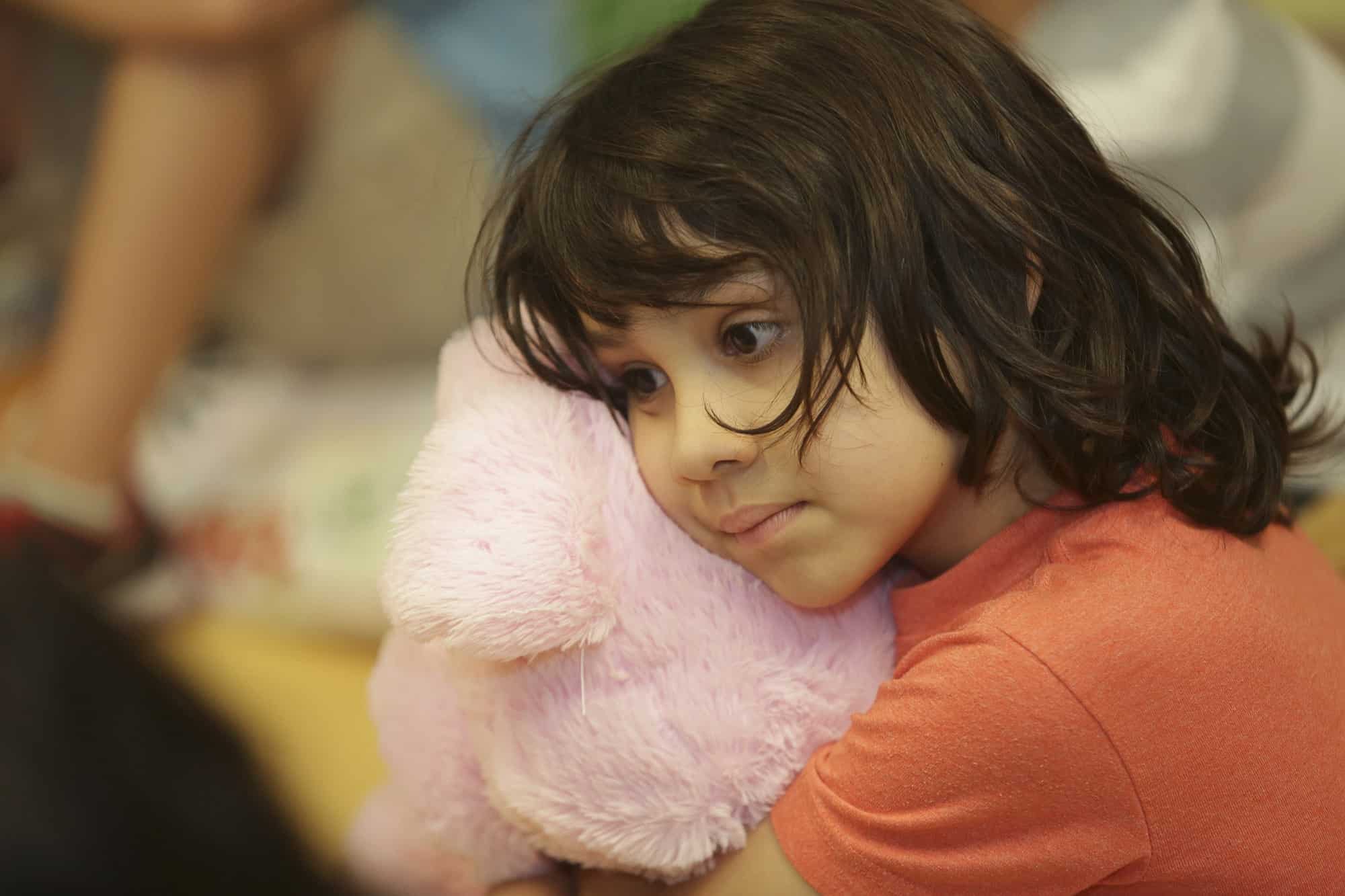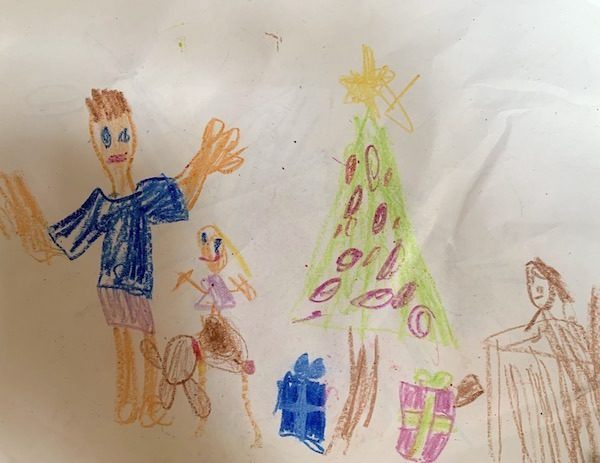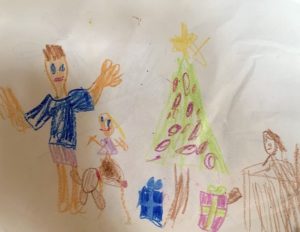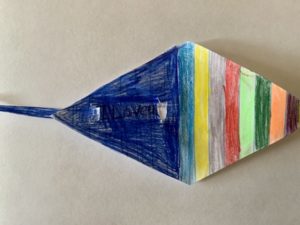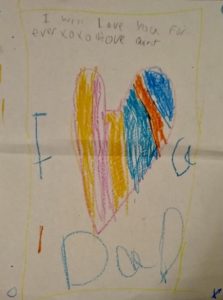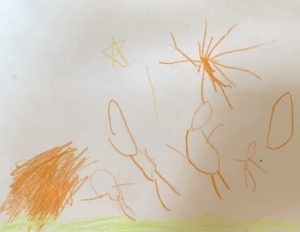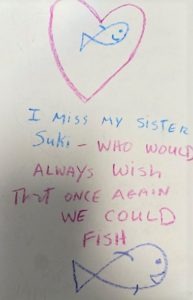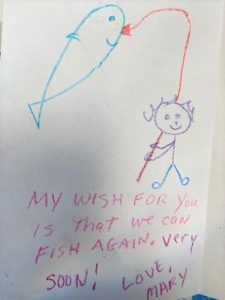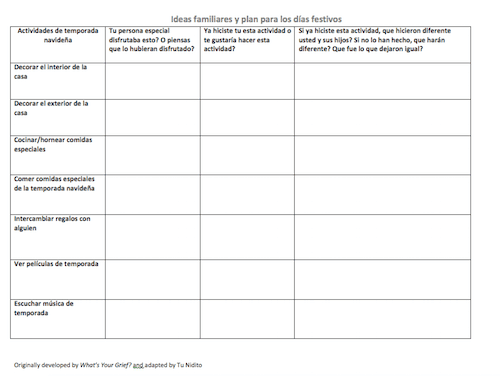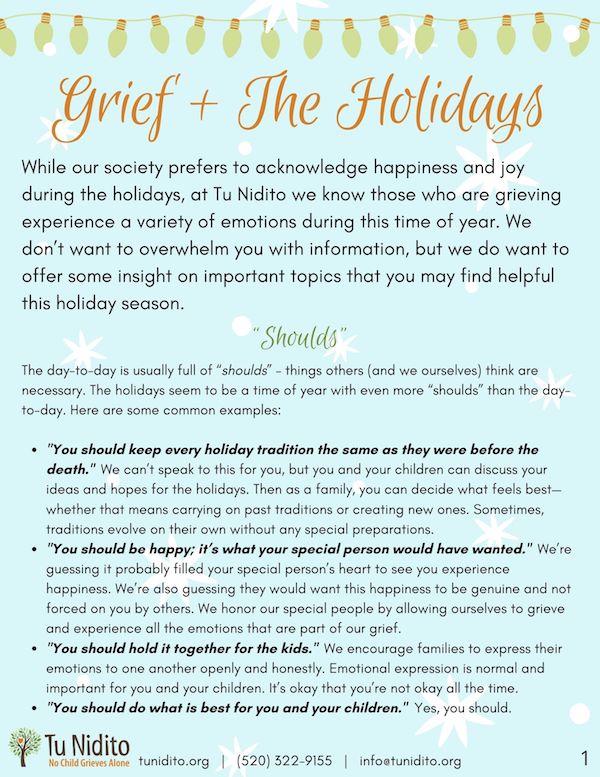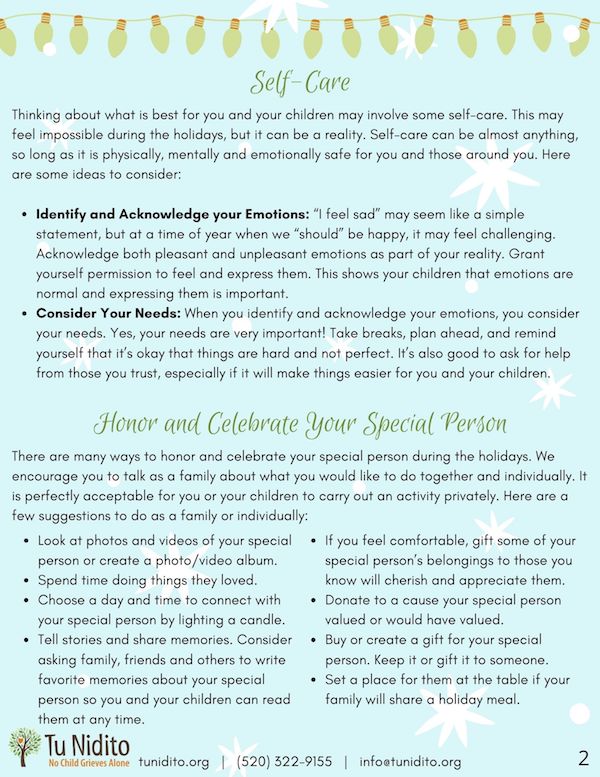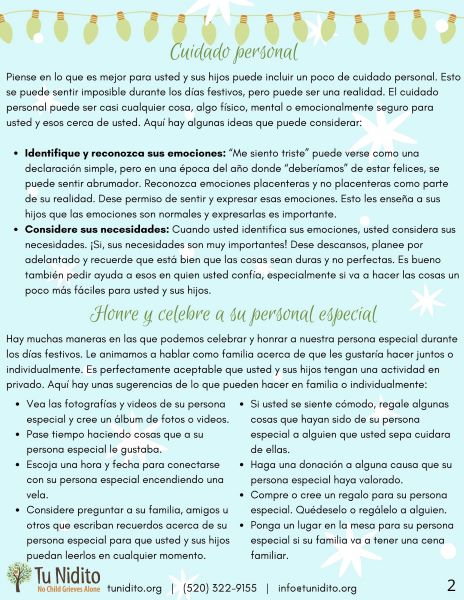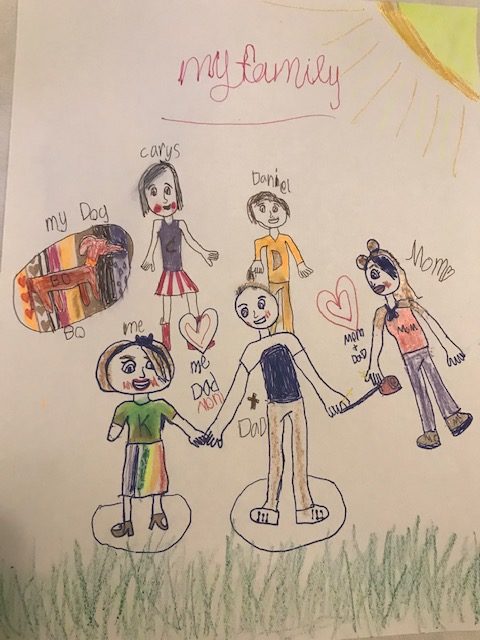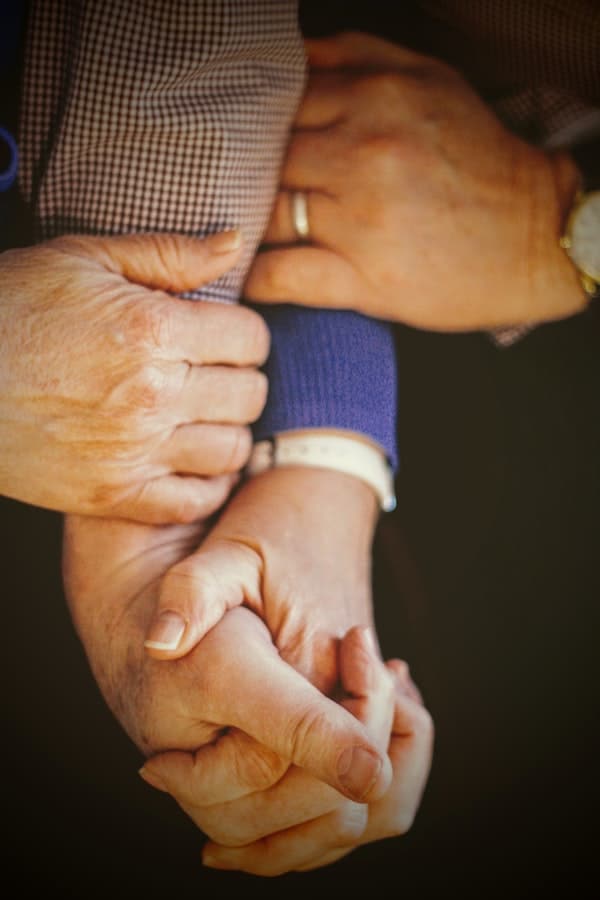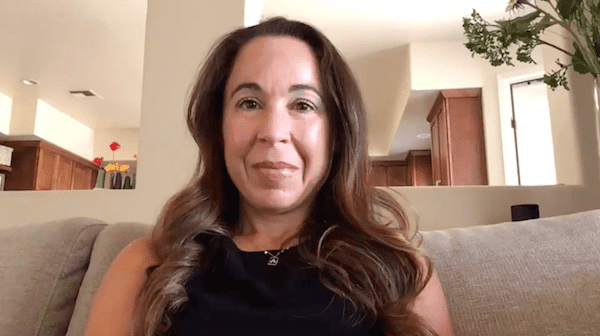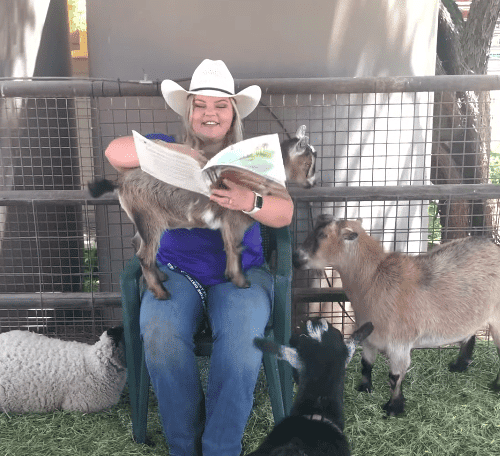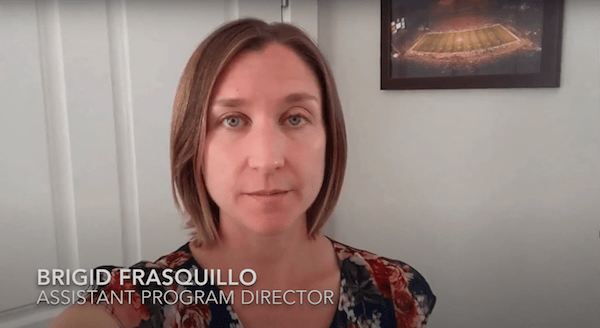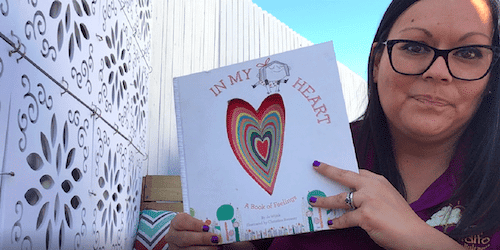Peer-To-Peer Support
Programs for families grieving the death of a loved one or a caregiver’s serious medical diagnosis
January 14, 2021
Tu Nidito’s grief support groups are currently being offered virtually, through Zoom video conferencing. While the way we meet is different, the heart of each meeting remains the same. Below, we’ll walk through each step of a virtual evening with Tu Nidito.
Why split up families into peer groups?
At Tu Nidito, we offer two types of support groups:
- For families who are grieving the death of a special person
- For families when a parent or adult caregiver has been diagnosed with a serious medical condition.
In both of these support groups, we provide age-appropriate emotional support that meets the developmental needs of participants. We achieve this by dividing families into four separate sub-groups: Littles (ages 3.5 to 7), Middles (ages 8 to 12) Teens (ages 13 to 18) and Adults (parents and caregivers).
Who is a Group Coordinator?
Tu Nidito groups are run by staff members called Group Coordinators. We have four Group Coordinators on staff: Brigid, Diana, Kristin, and Serena. In addition to providing emotional support and community resources to families both during and outside of group nights, Group Coordinators also handle group logistics and oversee the volunteer facilitators.




Who facilitates the groups?
Facilitators are a very important part of Tu Nidito groups. They are trained volunteers and assigned to an age group so they can work directly with the children and adults. With the support of the Group Coordinator, they lead each part of the group evening: the rules, check-in, talking circle question, activity and closing. Our facilitators are made up of undergraduate students, young professionals, and retirees.


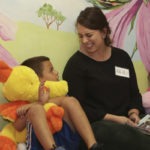


What are the group rules?
Group Rules are a way for our group members to feel comfortable and safe. The rules are a bit different for each age group, but here are some of our important ones:
- The “I Pass” Rule: You can always say “I Pass” if you are called on to share and you do not want to or are not ready.
- Confidentiality: Anything you or anyone else says in group will remain private, unless there is concern of harm to yourself or others.
- Talking Stick Rule, or “Taking Turns” Rule: Everyone will have an opportunity to share, uninterrupted.
- Comparing Losses Rule: Everyone’s loss and experience with grief is different, therefore participants will not compare their grief or loss with someone else’s.
- Advice Rule: We ask that each participant refrain from giving advice to their fellow group members, unless that person explicitly asks for advice.
How does a group begin?
Each night, we start our group with a check-in once we are in our Talking Circle Room. We do this with all age groups.
For bereavement support groups, participants say:
Their name
The name of their special person or people who died
How they died
How they are feeling that night
Their name
The name of their family member with a serious diagnosis
What the diagnosis is
How they are feeling that night
During our groups, we utilize reflective listening, giving the person who is sharing the comfort of knowing they are been heard.
In the past, we used a Talking Stick that we would pass around the room, giving each person the opportunity to do their check-in. During Zoom groups, each person is called by name when it’s their turn to talk.
What is a Talking Circle Question?
An example of a Talking Circle Question in our Littles group might be:
What do you wish you could say to your special person?
A Teen question might be:
Who told you when your special person died? Did someone provide comfort to you at that time?
The questions provide a path for everyone to feel safe in exploring their feelings and finding common ground with others.
Adults also have their own Talking Circle Question and discuss what their children are being asked so that they can continue talking about the subject as a family if they wish.
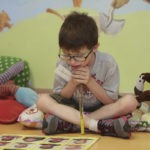



What sorts of activities do you do during group?
There are many important things we can do when we are grieving or experiencing the impacts of a diagnosis. At Tu Nidito we might draw or sketch images of our feelings, write letters to the person who died, or to the serious medical condition itself. We read books and play games to have fun and feel validated. We learn coping skills to calm our bodies and minds, such as deep breathing. Every group is something different, which means there’s always something new to do!



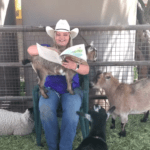


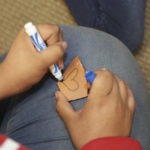
How does a group night end?
At the end of each group night, we will take a few moments to honor and celebrate any birthdays, death anniversaries, or other special days that might be coming up. Afterwards, we typically hold hands and pass around a “love squeeze” as a way for everyone to take home all of the love, comfort, hope, and support that they received from each other that night.
Since we now meet on Zoom, everyone puts their hand up towards their camera and on the count of three, we all squeeze our hands into fists and say “I got it,” signifying that each person “got” all that love and warmth. This tides us over until the next time we get to meet again.
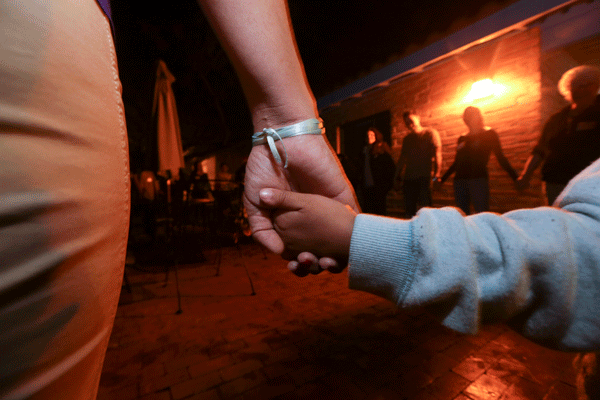
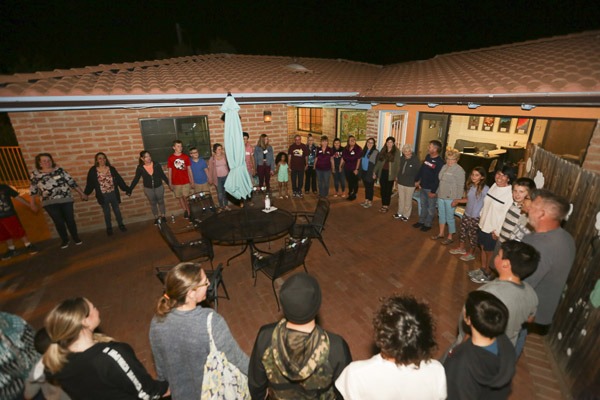
Do you have questions about our support groups?
Give us a call at (520) 322-9155 or email us at [email protected]
Que esperar en los grupos de apoyo de Tu Nidito
Programas para familias pasando por la muerte de un ser querido o el diagnostico de una enfermedad seria de un cuidador.
14 de enero 2021
Los grupos de apoyo para el duelo de Tu Nidito actualmente son ofrecidos virtualmente por medio de videoconferencias de Zoom. Mientras que la forma en la que nos juntamos es diferente, el corazón de cada reunión se mantiene igual. A continuación, repasaremos cada paso de un grupo virtual con Tu Nidito.
Porque separamos familias en grupos por edades?
En Tu Nidito, ofrecemos dos tipos de grupos de apoyo:
- Para familias que estan pasando por duelo de la muerte de una persona especial.
- Para familias cuando un padre o cuidador ha sido diagnosticado con una condicion medica seria.
En ambos grupos de apoyo, proporcionamos apoyo emocional de acuerdo a la edad para satisfacer las necesidades de desarrollo de cada participante. Logramos esto dividiendo a las familias en 4 sub-grupos: Pequenos (edades 3.5 to 7), Medianos (edades 8 to 12) Adolescentes (edades 13 to 18) y Adultos (Padres y cuidadores).
Quienes son los Coordinadores de Grupo?
Los grupos son manejados por personal de Tu Nidito llamados Coordinadores de Grupo. Tenemos custro Coordinadores de Grupo son: Brigid, Diana, Kristin, and Serena. Ademas de proporcionar apoyo emocional y recursos en la comunidad para familias durante y fuera de los grupos de apoyo, los Coordinadores de Grupo también manejan la logística de cada grupo y supervisan a los facilitadores voluntarios.




Quienes facilitan los grupos?
Los facilitadores son una parte muy importante de los grupos de Tu Nidito. Son voluntarios entrenados y asignados a cada grupo para que puedan trabajar directamente con niños y adultos. Con el apoyo del Coordinador de Grupo, ellos encabezan cada parte de la noche: Las reglas de grupo, la presentación, las preguntas de la noche, actividades y clausura. La mayoría de nuestros facilitadores son estudiantes, jóvenes profesionales o jubilados.





Que son las reglas de grupo?
Las reglas de grupo son una manera de que los miembros de nuestro grupo se sientan a gusto y seguros. Las reglas son un poco diferentes para cada grupo, pero aquí están unas que son las mas importantes:
- La regla “Yo paso”: Tu siempre puedes decir “Yo paso” si eres llamado a hablar pero tu no quieres o no te sientes listo.
- Confidencialidad: Todo lo que dices en el grupo o lo que los demas dicen en el grupo se mantendra privado, al menos que haya una preocupacion acerca de lesiones a ti mismo o contra alguien mas.
- La regla “La varita para hablar” o “Tomar turnos”: Todos tendran la oportunidad de hablar sin ser interrumpidos.
- La regla de comparar perdidas: La experiencia de cada persona con el duelo es diferente, por lo tanto, los participantes no comparan su duelo y perdidas con la de los demás
- Regla de consejos: Le pedimos a cada participante que se abstengan de ofrecer consejos a los demas participantes del grupo al menos que la persona, abiertamente, pida consejo.
- The “I Pass” Rule: You can always say “I Pass” if you are called on to share and you do not want to or are not ready.
- Confidentiality: Anything you or anyone else says in group will remain private, unless there is concern of harm to yourself or others.
- Talking Stick Rule, or “Taking Turns” Rule: Everyone will have an opportunity to share, uninterrupted.
- Comparing Losses Rule: Everyone’s loss and experience with grief is different, therefore participants will not compare their grief or loss with someone else’s.
- Advice Rule: We ask that each participant refrain from giving advice to their fellow group members, unless that person explicitly asks for advice.
Como empieza el grupo?
Cada noche, empezamos el grupo con una presentacion una vez que estamos en nuestros cuartos. Hacemos esto en todos los grupos con todas las edades.
Para grupos de apoyo de duelo, los participantes dicen:
- Su nombre
- Nombre de su persona especial o personas especiales que murieron
- Como murieron
- Como se sienten esa noche
Para grupos de apoyo para familias con un padre o cuidador impactado por el diagnostico de una enfermedad seria, los participantes dicen:
- Su nombre
- Nombre del miembro de su familia con la enfermedad seria
- Cual es el diagnostico
- Como se sienten esa noche
Durante nuestros grupos, utilizamos escucha reflectiva, dandole a la persona que esta compartiendo, la comodidad de saber que estan siendo escuchados.
En el pasado, utilizábamos la varita para hablar que pasábamos alrededor del grupo, dándole a cada persona la oportunidad de hacer su presentación. Durante nuestros grupos en zoom, cada persona es llamada por su nombre cuando es su turno de hablar.
Que son las preguntas del grupo?
Un ejemplo de las preguntas del grupo para los pequenos puede ser:
Que deseas que le pudieras decir a tu persona especial?
Una pregunta para los adolescentes puede ser:
Quien te dijo que tu persona especial murio? Alguien te dio confort en ese momento?
Las preguntas abren camino para que todos se sientan seguros al explorar sus emociones y crear un terreno comun con otros.
Los adultos tambien tienen sus preguntas de grupo y discuten lo que sus ninos estan hablando en grupo para que puedan continuar estas conversaciones como familia cuando gusten.




Que tipos de actividades se hacen durante el grupo?
Hay muchas cosas importantes que podemos hacer cuando estamos pasando por duelo o experimentando los impactos de un diagnostico. En Tu Nidito talvez dibujemos imagenes de nuestras emociones, talvez escribamos una carta a nuestra persona especial que murio o una carta directamente a la condicion medica. Leemos libros y jugamos juegos para divertirnos y sentirnos validados. Aprendemos habilidades de enfrentamiento para calmar nuestros cuerpos y mentes como respirar profundo. Cada grupo es algo diferente, lo que quiere decir que siempre hay algo nuevo que hacer.







Como se termina la noche?
Al final de cada noche, tomamos un momento para honorar y celebrar cumpleaños, aniversarios de muerte, u otros días especiales que están por venir. Después, típicamente nos tomamos de las manos y nos damos un “apretón del amor” como una manera para que todos se lleven a sus casas todo el amor, esperanza, confort y apoyo que recibieron de cada uno esa noche.
Como ahora nos vemos en Zoom, todos ponemos nuestras manos en la cámara y a la cuenta de tres, apretamos nuestras manos y decirnos “lo tengo”, lo que significa que cada persona “tiene” todo el amor, y calor de sus compañeros. Esto nos une hasta que nos vemos en la próxima vez.


¿Tiene preguntas?
(520) 322-9155 | [email protected]

